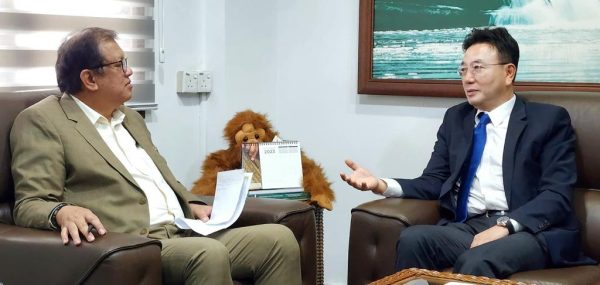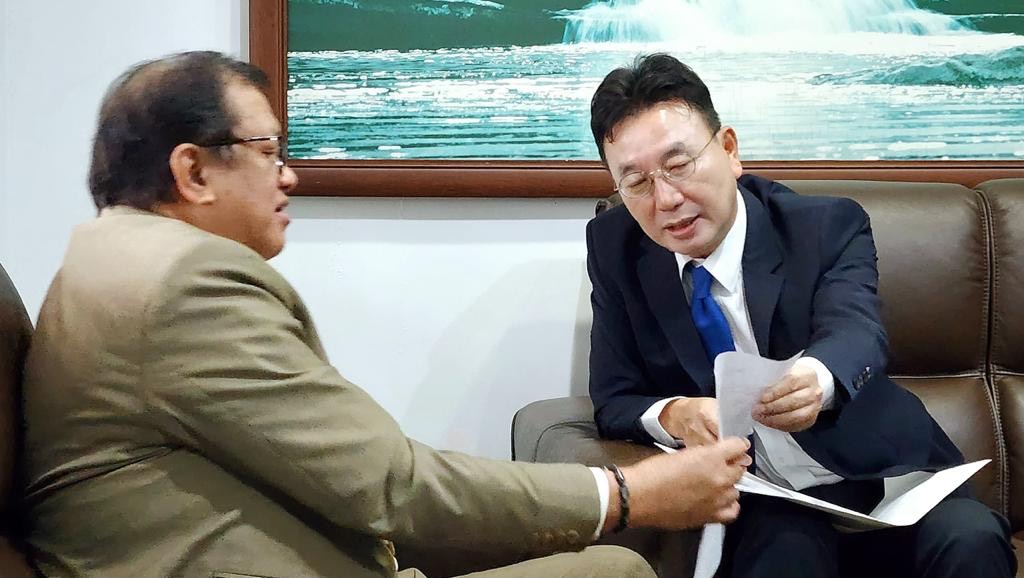KOTA KINABALU, 22 November 2023: Sabah’s golf courses are a compelling draw for Koreans due to their convenient accessibility, says South Korean consulate-general in Kota Kinabalu Joo Jung-cheol.
Joo mentioned that with 5 million golfers in Korea, attracting even 10% of them to Sabah represents a significant opportunity.

“Our golfers in Korea highly value South East Asia, including destinations like Thailand, Malaysia, Vietnam, Indonesia, and the Philippines,” he stated.
He highlighted Malaysia’s rise as the third-favoured destination for Korean golfers, trailing behind Thailand and the Philippines, during a meeting with Assistant Tourism, Culture, and Environment Minister cum Sabah Tourism Board chairman Datuk Joniston Bangkuai on Monday (20 November) to discuss tourism and investment opportunities.
“I have played golf in Kota Kinabalu, and in my opinion, it is the best due to its excellent accessibility to golf courses in the heart of the city centre and within a 30-minute drive. It is a good selling point,” said Joo.
He was referring to the Sutera Habour Golf and Country Club, the Sabah Golf and Country Club, the nearby Karambunai Golf and Country Club, and the Dalit Bay Golf and Country Club.
“We anticipate many Koreans will come to Sabah during the high season between December and February for winter vacation and golf,” added Joo.
In 2019, he noted that 480,000 Koreans visited Sabah, with over 20 per cent participating in golf-related activities.
He also emphasised Sabah’s growing popularity as an investment destination for Korean investors, with Korean companies investing in the state’s golf business.
Meanwhile, Joniston emphasised Sabah’s commitment to promoting golf tourism as a niche market, highlighting the affordable packages that appeal to Koreans without compromising on quality services.
In addition, he noted that the involvement of major companies like SK Nexilis in Sabah’s investment landscape would not only yield spillover effects in tourism but also play a pivotal role in promoting the state and attracting more tourists.
“Koreans currently top Sabah’s tourist market, and China is slowly picking up. We are doing everything possible to continue attracting Korean tourists and others with our many attractions that cater to their specific needs,” he said.
For more information on Sabah’s tourism and attractions, visit www.sabahtourism.com.








